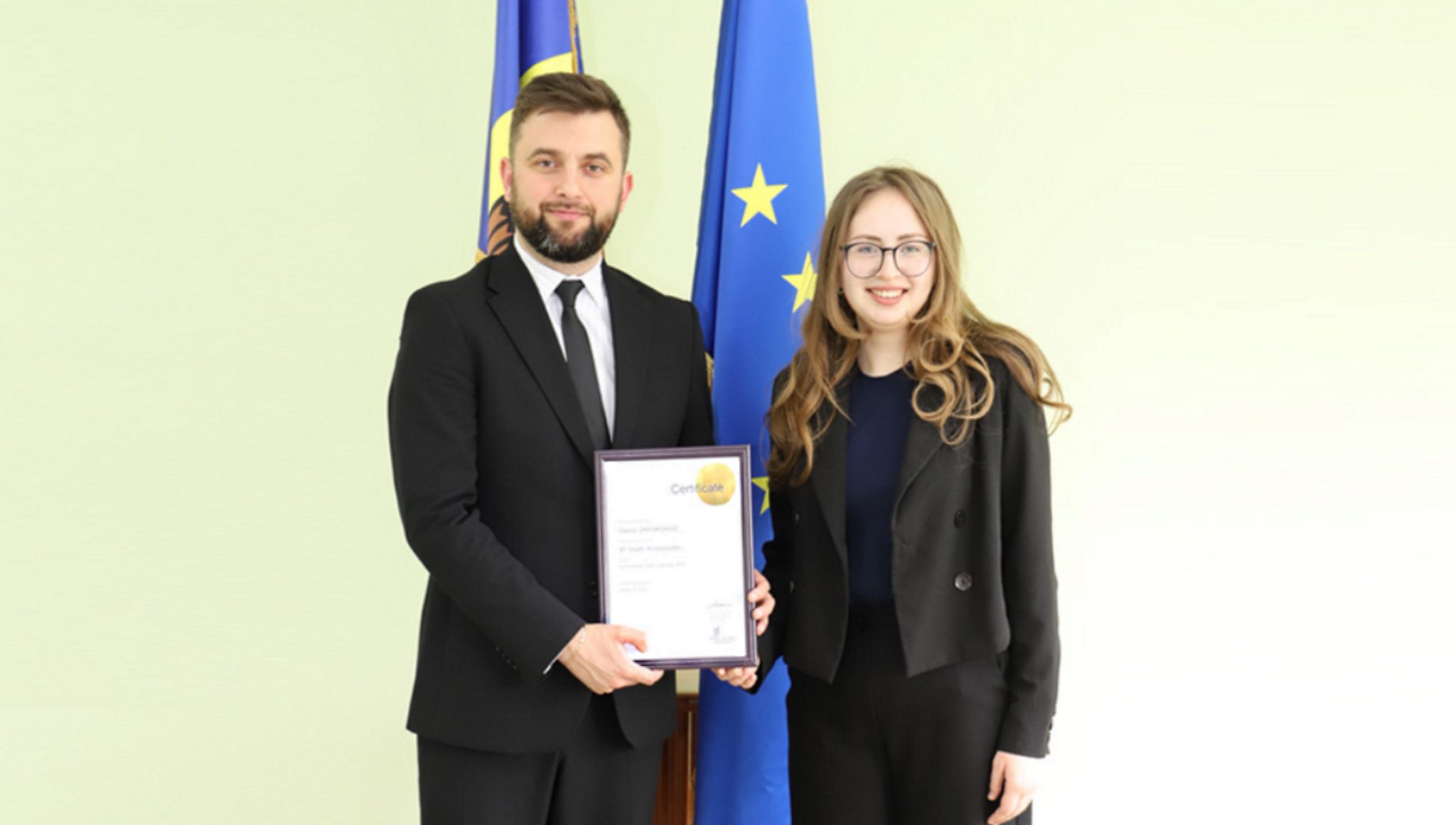Between December 12th-15th, 2019, a team of professors from the Department of Microelectronics and Biomedical Engineering (MIB) – prof., PhD. Oleg LUPAN, director of the Center for Nanotechnologies and Nanosensors, lect. Nicolai ABABII and PhD student Nicolae MAGARIU, who also works at the Center for Nanotechnologies and Nanosensors, dr. Vasilii CREȚU, MIB, Faculty of Computers, Informatics and Microelectronics at the Technical University of Moldova, conducted an exchange of experience and perfecting in Italy, within the NATO project Science for Peace and Security (SPS) G5634 “Advanced Electro-Optical Chemical Sensors” AMOXES, https://amoxes.unibs.it at the University of Brescia – Università degli Studi di Brescia.
The agenda of the visit included discussions on the initial research phase within the AMOXES Project, in particular WP1, which includes the study of common research topics aimed to achieve the goals and fulfill the tasks of the project, such as: the need for efficient, portable chemical sensors and the implementation of platforms for civil, industrial and security applications; providing new electro-optical chemical nano-sensors; developing sensory devices that combine two different transduction principles.
Our teachers also paid a visit to the Department of Computer Engineering, which combines applied physics, theoretical physics, physics of sensors and computing, including the “Sensor Lab” interdisciplinary research center, where students and scientific researchers from different countries test and implement their knowledge by solving real problems of the country’s economy/industry, developing new technologies, nanomaterials and sensory devices under the guidance of the university professors responsible for the respective spheres, later applying them in the country’s industry.
Asked to comment on the results of this visit, the university lecturer Nicolai ABABII mentioned:
– It was an extremely fruitful and worthwhile visit. The University of Brescia impressed us with the “Sensor Lab” laboratories within the Engineering Department, led by prof, PhD Elisabetta COMINI. I was very impressed by the working environment, the organization of the activity and the equipment – an impressive variety of high performance installations and machinery, used in the development and research of new sensors. At the host University, within the 3 study cycles, there are both citizens of Italy and ones from abroad – over 20,000 students eager for knowledge.
PhD student Nicolae MAGARIU mentioned, in this context, that this working visit motivated him to orient himself towards the high level research – a decision made based on the very dynamic working atmosphere that prevails in the laboratories of elaboration and research of sensors, equipped with ultra-performing tools for making all necessary measurements in the given project area. He specified that he was especially pleased to be able to participate as a scholar in this international project, in which many young researchers and doctoral students are involved under the guidance of world-renowned scientists and researchers with rich experience in the field.
Dr. Vasilii CREȚU shared with us his impressions regarding the good organization of the Italian university education process, in particular within the Scientific Research Center he visited, and which has a well-established and relatively independent structure, owning all the equipment, installations and devices necessary for the complete synthesis cycle of sensor structures and research of sensory properties of the new nanomaterials. He was also impressed by the city of Brescia and its multisecular culture.
The AMOXES project is a consortium between the Università degli Studi di Brescia, Italy, the Australian National University, Canberra, and the Technical University of Moldova, with a budget of over a quarter of a million euros. The project directors from the three universities involved are not paid, instead the young people benefit from monthly scholarships. UTM was invited to this consortium based on the results of its scientific research, of the more than 177 ISI-listed publications, over 8000 citations in SCOPUS and of the index h = 51 registered by the prof., Dr. Oleg LUPAN, titular of the Department of Microelectronics and Biomedical Engineering, Faculty of Computers, Informatics and Microelectronics at the Technical University of Moldova.
[av_gallery ids=’66488,66489,66490,66491,66492,66493,66494,66495′ style=’big_thumb’ preview_size=’featured_large’ crop_big_preview_thumbnail=’avia-gallery-big-crop-thumb’ thumb_size=’featured_large’ columns=’8′ imagelink=’lightbox’ lazyload=’avia_lazyload’ id=” custom_class=” av_uid=’av-t2nbme’ admin_preview_bg=”]




